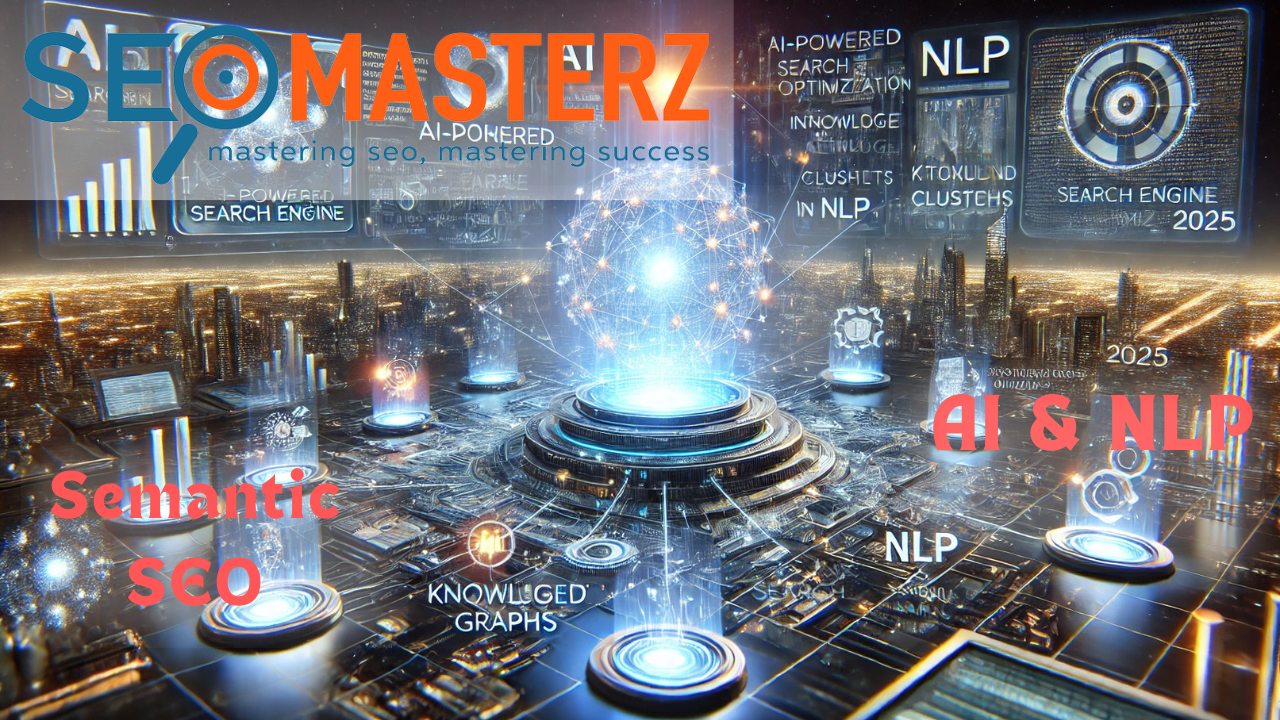Search engines have evolved dramatically over the years, moving from basic keyword matching to understanding the true intent behind user queries. Semantic SEO has become the backbone of modern search engine optimization. Semantic Search Engine Optimization 2025 is crucial for ranking; AI and NLP reshape search ranking.. With advances in artificial intelligence (AI) and natural language processing (NLP) search engines like Google Bing and DuckDuckGo are getting smarter at interpreting user intent and delivering more accurate results.
In this article, we’ll explore how AI and NLP are changing Semantic SEO in 2025 the best optimization strategies and how you can stay ahead of the search game.

What is Semantic SEO?
Semantic SEO refers to the process of optimizing content based on its meaning and context just targeting exact keywords. This approach allows search engines to better understand the relationships between words titles and search intent.
Key Elements of Semantic SEO
1. Search Intent Optimization: Targeting User Needs Accurately.
2. Entity-Based Optimization Using structured data and knowledge graphs.
3. Topic Clusters and Pillar Pages Creating interconnected content.
4. Latent Semantic Indexing (LSI) Keywords Related terms that increase content relevance.
5. Voice Search Optimization Increasing visibility for conversational queries.
6. Contextual Backlinking Building authority with relevant sources.
7. AI-Powered Content Using machine learning tools to improve readability.
How AI and NLP Are Changing Search Rankings
Artificial intelligence and natural language processing (NLP) play a key role in shaping Google’s algorithms. These algorithms are BERT (Bidirectional Encoder Representations from Transformers) and MUM (Multitask Unified Model). These AI powered models allow search engines to interpret synonyms, sentence structure, and even sentiment in user queries.
The Role of AI in SEO
• Content Personalization AI suggests content based on user behavior.
• Sentiment Analysis: Helps search engines determine positive or negative intent.

Future of Semantic SEO Trends to Watch in 2025
1. Conversational AI and Chatbots
• More websites will integrate AI powered chatbots for real time engagement.
•Google will prioritize content that answers conversational questions.
2. Hyper personalization in search results
• Search engines will rely more on user behavior data to deliver highly personalized results.• AI will adjust search rankings based on past interactions.
3. Multimodal search (text image and voice search)
• Google MUM model understands text images videos and voice.
• Marketers will need to optimize for image and video SEO alongside text.
4. Increase in zero click searches
• Google will provide direct answers reducing click through rates (CTR).
• Featured snippets People Ask knowledge panels will dominate.
5. Core Web Vitals and UX Signals
• Page speed interactivity and visual consistency will continue to influence rankings.• Google will emphasize user friendly design and navigation.

How to Optimize for Semantic SEO in 2025
1. Use Structured Data and Schema Markup.
• FAQ schema for frequently asked questions.
• How to schema for step by step guides.
2. Optimize for voice search
• Use natural, conversational language in your content.
• Answer direct questions concisely in featured snippet format.
3. Take advantage of LSI keywords and contextual keywords.
• Use related phrases to increase semantic relevance.
4. Create comprehensive content hubs
• Create pillar pages that cover broad topics.
• Interlink related blog posts and resources for deeper insights.
5. Improve UX and core web vitals
• Improve page speed and ensure a mobile-friendly experience.
• Minimize intrusive ads and prioritize easy navigation.
6. Focus on E A T (Expertise Authenticity Trustworthiness)
• Cite credible sources and link to authoritative domains.
• Show author bio and credentials for credibility.
Frequently Asked Questions (FAQ)
1. What is the difference between Semantic SEO and Traditional SEO?
Traditional SEO focuses on keywords. Semantic SEO emphasizes connections between context, search intent, and topics.
2. How does AI affect search engine rankings?
AI helps search engines interpret search queries more accurately, personalize results, and improve content recommendation systems.
3. What are some examples of NLP in SEO?
• Google’s BERT and MUM models increase search query understanding.
• Chatbots and AI-generated content improve engagement.
4. How can I improve Google’s MUM algorithm?
• Use multimedia content (text, images, and videos).
• Implement structured data and improve content depth.
5. Will traditional keywords become obsolete?
No focusing on keywords without context intent will ineffective. Semantic SEO is the future.
Semantic SEO is revolutionizing the way search engine optimization is approached in 2025. With AI and NLP advancing rapidly understanding user intent. Optimizing for voice and image search and leveraging structured data are more important ever.
To stay ahead of the competition, focus on quality relevance and user experience. Embrace AI powered tools, entity based optimization and contextual linking to dominate search rankings. By embracing these new SEO trends businesses and content creators can ensure long term success in an AI powered digital landscape.
Related Keywords and LSI Keywords
• Google AI Algorithm 2025
• E A T SEO Strategy

